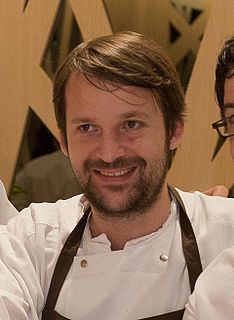A Quote by Frank Delaney
Kitchens are for conversation. They're not just for cooking; they're for conversations.
Quote Topics
Related Quotes
Look at something like cooking. Now, you would hear a lot about smart kitchens and augmented kitchens. And what do those smart kitchens actually do? They police what's happening inside the kitchen. They have cameras that distinguish ingredients one from each other and that tell you that shouldn't mix this ingredient with another ingredient.
There is something about the South that accepts the supernatural. If you don't accept it and you're having a conversation with someone who does, it's just one of those polite things where you don't question their belief in ghosts. You just go, 'Oh, yeah, okay.' It's amazing to be able to have conversations like that.
Management is a far more homely business than its would be scientists suggest, more closely allied to cookery than any other human activity. Like cooking, it rests on a degree of organisation and on adequate resources. But just as no two chefs run their kitchens the same way, so no two managements are the same.







































